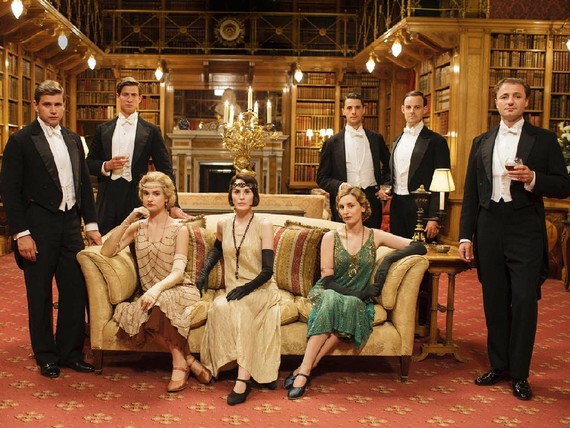Is Downton just a period piece? “We want constant novelty, but we also want everything to stay the same,” Fellowes told The New York Times Magazine in 2011.
Downton Abbey, Casualty of a Changing World
The aristo-soap, which won an immense following in the aftermath of the financial crisis, is ending before the appeal of its upstairs-downstairs dynamic wears off.
|
Downton Abbey has seen its fair share of impromptu exits. But last Thursday’s news that the show would wrap after its sixth season wasn’t entirely unexpected. Rumors that the ITV aristo-soap was coming to an end were picked up in January, when NBC Chairman Paul Greenblatt announced that the series’ writer-creator Julian Fellowes had started work on his next project, The Gilded Age. But the death knell already sounded earlier this month, when Maggie Smith let slip to The Sunday Times that she figured next season was the last, given that her character is probably 110 years old by now.
It’s time, and not just because one could hardly fathom Downton without the Dowager Countess. As the actor Hugh Bonneville recently noted, Downton Abbey was never designed with the intention of lasting beyond a few seasons—in fact, there was “no guarantee” it would continue after the first series. That it did—and what’s more, that it became a global phenomenon—had a lot to do with what people wanted, and needed, to watch in 2011, when it first aired stateside. In 2015, the show isn’t quite as relevant as it once was—and in typical British fashion, it’s showing the good manners to say goodbye just before it’s no longer wanted.
Click here to read more.

